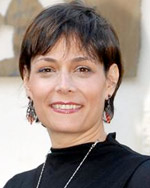By Leah Garber
Weary and divided, frustrated, and disappointed, yesterday the Israeli people went back to the polls for the fifth time in three-and-a-half years.
As a reminder, here is a bit of the backstory: In June of 2021, for the first time in Israel’s history, an Arab party was invited to join a coalition government, which, under the leadership of former Prime Minister Naftali Bennett and alternate Prime Minister Yair Lapid, included parties on the left and the right, Arabs and Jews.
It was a narrow coalition, and like a tender young tree, it hoped to grow branches and roots and share its fruits and shade with others. Unfortunately, the Bennett-Lapid government was exposed to passing winds and storms, and its branches bent under the burden of threats, even as its trunk tried with all its might to maintain stability. It also was a unique government. With 61 members, the smallest majority in a parliament of 120 members, needed to establish a coalition, the Bennett-Lapid government was motivated to change, to lead, and to get Israel out of its political floundering. Above all, it was dedicated to bridging social gaps and demonstrating that diverse Israelis can serve under one government for the benefit of the public. Unfortunately, this narrow and fragile government succumbed to the political storms and winds, which forced its dissolution.
Meanwhile, Israel, like many Western nations, is facing significant price increases in many sectors; a wave of terrorism from Palestinian cities in the center of the country that disrupts daily life with sporadic threats and planned attacks; and repeated election campaigns that scar society and lead to polluted, racist, and a mostly destructive discourse in which words and defamations have become the norm—all for the sake of political interest. The last thing Israel needs now is another election campaign, but here we go again.
Sounds crazy, right?
The Israeli people, ever adaptable, have gotten used to frequent elections, and many— assuming there will be no stable coalition of more than 61 members of parliament this time around either—already are looking ahead to April, when the sixth round of elections are expected to take place.
The term Knesset (Israeli parliament) is familiar to many of us. It reminds us of the term beit knesset, which literally means “house of assembly” and is the Hebrew word for “synagogue.” The word knesset comes from the root “to gather.” The use of the word Knesset to designate the country’s governing body is derived from the ancient Knesset HaGdola or “Great Assembly,” which, according to Jewish tradition, was an assembly of 120 scribes, sages, and prophets, who gathered during the period from the end of the biblical prophets to the time Rabbinic Judaism was developed—about two centuries, ending around 200 B.C.E. Unfortunately, there is no organizational continuity between the ancient Knesset and the modern one, and aside from the number of members, there are no similarities either.
Today’s Knesset is the unicameral legislature of Israel. As the supreme state body, it has complete control of the Israeli government. The Knesset passes all laws, elects the president and prime minister, approves the cabinet, and supervises the work of the government, among other things. In addition, the Knesset elects the state comptroller, can waive the immunity of its members, remove the president and the state comptroller from office, dissolve the government in a constructive vote of no confidence, and dissolve itself and call new elections.
The Knesset’s 120 members are popularly elected from a single nationwide electoral district to concurrent, four-year terms, subject to calls for early elections (which are quite common). All Israeli citizens 18 years and older may vote in legislative elections, which are conducted by secret ballot.
Knesset seats are allocated among the various parties, which are divided according to the number of votes received by each party. No one party has ever won the 61 seats necessary for a majority and therefore, elections are followed by a 42-day period of coalition negotiations—an exhausting process—during which parties try to form a joint coalition based on ideology and interests.
In this week’s elections, Israelis chose the Likud Party and its leader, Benjamin Netanyahu, along with other religious and right-wing parties from among a total of 40 parties, although only about 12 have a real chance to obtain the percentage required by law to vie to be included in a coalition. Among those represented by various parties are Israel’s Arabs, new immigrants, and ultra-Orthodox Jews (split between Ashkenazi and Sephardic identity), as well as citizens who identify with right-wing national religious, moderate right-wing, center, labor, and liberal left-wing parties.
Approximately 71% of Israelis went to the polls this week, casting their votes not based on ideology but rather on personal preferences. These days the political agenda is less about policy—social or security—and more about the personality of the elected leader. In other words: Bibi or not Bibi.
Yesterday, the seventh day of the Hebrew month of Cheshvan, is the day Jews in Israel, in their thrice-daily prayers, begin to ask for rain. We long for rain—to freshen the air, saturate the dry, cracked earth, and produce growth and blessing.
I pray that this winter’s blessed rains will clean not only the air but also the political atmosphere; purify our differences; and fill our reservoirs of patience and tolerance so that we can truly nurse the fractures and strengthen the government of our wonderful country.
 Leah Garber is a vice president of JCC Association of North America and director of its Center or Israel Engagement in Jerusalem.
Leah Garber is a vice president of JCC Association of North America and director of its Center or Israel Engagement in Jerusalem.